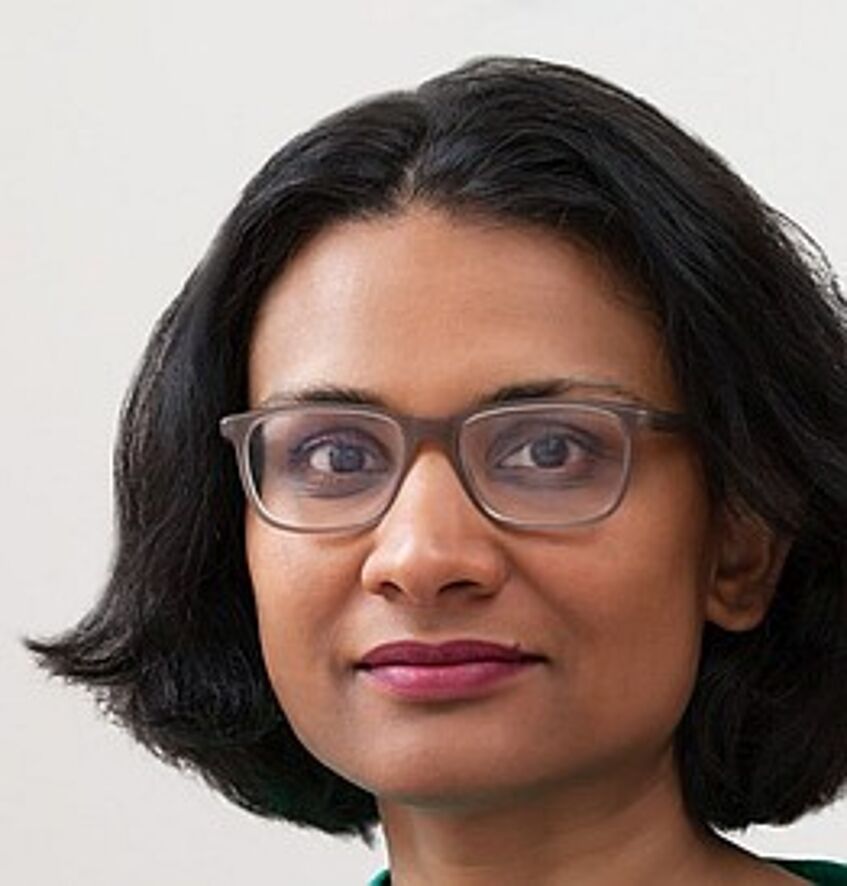Labour Governance in global production networks: Assessing labour standards in a new generation of public procurement legislation and trade agreements linked to market access into the European Union (LG-GPN)
The global economy is increasingly structured around global production networks (GPNs). For many countries of the Global South, integration into GPNs is a key industrialisation and development strategy. While GPNs have provided employment opportunities and led to improvements in economic development in some countries, they have in many cases also contributed to poor working conditions and international labour rights violations. This is particularly the case for the clothing and electronics industries, which have faced low wages, excessive overtime, insecure work contracts, forced labour, and deaths from building collapses and worker suicides. Public and private governance measures, such as national laws and private standards, thus far, have resulted in limited success in systematically improving working conditions and protecting workers in GPNs. While research on labour governance in GPNs has focused on these more traditional governance measures, we know less about the effects a new generation of labour standards tied to market access into the European Union (EU) (the largest public and private consumer market in the world) can have on working conditions in GPNs.
The LG-GPN project aims to fill this gap by researching the impact labour standards that are part of new free trade agreements and public procurement legislation in the EU can have on labour governance in GPNs. The project case studies are on the clothing and electronics industry GPNs and the production country Vietnam. The case study on Vietnam is relevant because it is a country that is deeply embedded in the clothing and electronics industry GPNs and is an important trading partner of the EU. The LG-GPN project specifically analyses labour provisions as part of the EU-Vietnam Free Trade Agreement (EVFTA) and socially responsible public procurement in Germany, Austria, the Netherlands and Sweden. It assesses if and how these new governance instruments affect governance processes of and power relationships between GPN actors that include firms, civil society organisations, trade unions, and government agencies in the EU and in Vietnam.
The LG-GPN project uses an inter-disciplinary theoretical framework that combines the GPN approach originating in economic geography with emerging theories in transnational regulatory governance from political science and concepts of labour power and transnational networks from labour sociology. The objective of the LG-GPN project is to advance theory on transnational labour governance in GPNs and increase our empirical understanding of labour governance through an under-researched set of labour standards and a key GPN production location in the Asia-Pacific region (Vietnam) with strong economic ties to the EU.
The project is funded by the German Research Foundation (DFG) and the Austrian Science Fund (FWF) and brings together researchers from the Berlin Social Science Center (WZB)/Bard College Berlin, the University of Vienna and TU Wien.
Project Team

Project Team
Principal investigator and project leader (Germany): Gale Raj-Reichert, Ph.D. (Berlin Social Science Center, WZB, 2019-2021 and Bard College Berlin, 2021-2022)
Gale Raj-Reichert is Professor of Politics at Bard College Berlin and was a Research Fellow at the Berlin Social Science Center (WZB) and Lecturer in Economic Geography at the School of Geography at Queen Mary University of London. She holds a PhD in Development Studies from the Global Development Institute of the University of Manchester. Her research is focused on labour governance in the electronics industry global production network/global value chain, and in particular on how working conditions are governed by firms, civil society organisations, and governmental actors in the Southeast Asia region. This has included research on Malaysia, Singapore, Indonesia, Vietnam and China.

Principal investigator (Austria): Dr. Cornelia Staritz, Ph.D. (University of Vienna)
Cornelia Staritz is Associate Professor in Development Economics at the Department of Development Studies at the University of Vienna.. She is also a Senior Research Associate at the Austrian Foundation for Development Research (ÖFSE) and Research Associate at the Policy Research on International Services and Manufacturing (PRISM) at the Department of Economics at the University of Cape Town. She holds a PhD in Economics from the New School for Social Research and a Doctorate in Economics from the Vienna University of Economics and Business. Her research focuses on development economics and policy, international trade and trade policy, global production networks and value chains, and commodity-based development.

Co-principal investigator (Austria): Dr. Leonhard Plank (TU Wien)
Leonhard Plank is Senior Scientist at the Centre of Public Finance and Infrastructure Policy at the Department of Spatial Planning at TU Wien. Before joining the Institute, he was a visiting fellow at the University of Manchester, the University College London (UCL) and the Institute of Human Sciences (IWM). He holds a PhD in Business Administration from the University of Graz. His research interest is structured around globalisation and socio-economic development at different scales and conceptions of alternative economies, as well as on infrastructure and financialisation. He is a member of the Foundational Economy Collective.

Post-doc researcher: Kristoffer Marslev, PhD (University of Vienna)
Kristoffer Marslev is Post-Doc Researcher in the LG-GPN project at the Department of Development Studies at the University of Vienna. He is a political economist with a main research interest in labour in global production networks and value chains. After degrees in political science from the University of Copenhagen and development studies from SOAS University of London, Kristoffer completed his PhD in global studies at Roskilde University and the Danish Institute for Human Rights. In his thesis, Kristoffer uses a class-relational theoretical perspective to investigate processes of social and economic upgrading in the clothing industries in Cambodia and Vietnam.

Post-doc researcher: Dr. John Watt (Berlin Social Science Center, WZB)
John Watt is a postdoctoral researcher at the Centre of Public Finance and Infrastructure Policy at the Department of Spatial Planning at TU Wien. Before joining the Institute, he spent five years on the Sustainable Economy and Procurement Team at ICLEI, coordinating and supporting EU research projects on social, green and circular public procurement. He holds a PhD in Sustainable Procurement from the University of Strathclyde. His research interests include examining the role of public procurement in developing socially responsible global supply chains, using emerging theories in transnational regulatory governance and networks.
Publications:
Marslev, K. and Staritz, C. (2022) Towards a stronger EU approach on the trade-labour nexus? The EU-Vietnam Free Trade Agreement, social struggles and labor reforms in Vietnam, Review of International Political Economy,1-26, DOI: 10.1080/09692290.2022.2056903
Marslev, K., Staritz, C, Raj-Reichert, G. (2022) Rethinking Social Upgrading in Global Value Chains: Worker Power, State-Labour Relations and Intersectionality, Development and Change,1-33, doi.org/10.1111/dech.12705
Raj-Reichert, G., Staritz, C. and Plank, L. (2022) Conceptualizing the Regulator-Buyer State in the European Union for the Exercise of Socially Responsible Public Procurement in Global Production Networks, Journal of Common Market Studies, 759-782, DOI: 10.1111/jcms.1328
Marslev, K., Staritz, C., Raj-Reichert, G., and Plank, L. (2021) "Soziales Upgrading und Beschäftigtenmacht in globalen Wertschöpfungsketten". In: WSI Mitteilungen, 74. Jg. 1/2021 (Title in English: Social upgrading and worker power in global value chains)
Gräf, H. and Raj-Reichert, Ga. (2020) "Bessere Arbeitsbedingungen weltweit. Das neue Berliner Vergaberecht stärkt soziale Verantwortung für Lieferketten". In: WZB-Mitteilungen, H. 168, S. 95-97. (Title in English: Better working conditions worldwide. The new Berlin procurement law strengthens social responsibility in supply chains)
Raj-Reichert, G. and Gräf, H. (2020) Socially responsible public procurement by the city and districts of Berlin: protecting workers in global supply chains (unpublished paper, Berlin)
Raj-Reichert, G. and Plank, L (2019) Labour law compliance and the role of labour: Inspection Viet Nam’s electronics sector. Working Paper. International Labour Organization. Geneva. https://www.ilo.org/wcmsp5/groups/public/---ed_emp/---emp_ent/---multi/documents/publication/wcms_756179.pdf
Publications in preperation:
Marslev, K., Staritz, C. ‘Labor standards, state-society relations and global production networks: Assessing the impact of the EU-Vietnam free trade agreement”
Graef, H. and Raj-Reichert, G. '"Resellers" as intermediaries implicated in socially responsible public procurement: reconceptualising labour governance in global production networks’
Watt, J., Raj-Reichert, G., and Plank, L. ‘Socially responsible public procurement activity for global production networks: explaining differences in Sweden and Germany’
Marslev, K., Plank, L., and Staritz, C.. ‘Do public buyers make a difference? Labour governance and working conditions in the workwear global production network in Vietnam’
Presentations:
2022
Labor Standards, State-Society Relations and Global Production Networks: Assessing the Impact of the EU-Vietnam Free Trade Agreement - presented at the 34th Annual SASE Meeting in Amsterdam: Fractions Connections. Anarchy, Activism, Coordination and Control.
2021
Raj-Reichert, G. and Gräf, H. (2021) ‘Re-sellers’ as intermediaries implementing social standards in public procurement: reconceptualising public governance in the electronics industry global production network’, Sustainability in Global Value Chains organised by the Research Network Sustainable Global Supply Chains, 7 December 2021 in Vienna.
Marslev, K. and Staritz, C. ‘Towards a stronger EU approach on the trade-labour nexus? Pre- and post-ratification impacts and the EU-Vietnam Free Trade Agreement’, Presentation at International Labor Organisation Regulating Decent Work conference, 8 July 2021.
Graef, H. and Raj-Reichert, G. ‘Resellers’ as intermediaries implicated in socially responsible public procurement: reconceptualising labour governance in global production networks’, Presentation at International Labor Organisation Regulating Decent Work conference, 7 July 2021.
Marslev, K. and Staritz, C. ‘Towards a stronger EU approach on the trade-labour nexus? The EU-Vietnam Free Trade Agreement, domestic labour reforms and social struggles in Vietnam’, Society for the Advancement of Socio-Economics Annual Conference, 5 July 2021.
Raj-Reichert, G. ‘Resellers’ as intermediaries implicated in socially responsible public procurement: reconceptualising labour governance in global production networks’, Presentation at Society for the Advancement of Socio-Economics, 4 July 2021.
Raj-Reichert, G. ‘Socially responsible public procurement in the EU - a global production networks perspective’, Guest lecture at the Institute of Geography, University of Osnabrueck, Germany, 11 January 2021.
2020
Raj-Reichert, G. ‘Impacts of the Covid-19 pandemic on the electronics industry: restructuring and regionalising value chains’, Presentation at the University of Manchester Global Development Institute Lecture Series Webinar, 24 November 2020.
Raj-Reichert, G. ‘The electronics industry global value chain in the times of covid-19: Recovery, restructuring & regionalising (A focus on lead firms and contract manufacturers)’, Presentation at the 24th Forum for Macroeconomics and Macroeconomic Policies, Macroeconomic Policy Institute (IMK) of the Hans-Böckler Stiftung, 30 October 2020. Please click here for slides
Raj-Reichert, G. ‘The ‘regulator-buyer’ state & socially responsible public procurement: the case of Berlin. Presentation at the Faire ICT Hardware Beschaffung – einfach zugänglich machen’, University of Bern webinar. 23 October 2020. Please click here for slides.
Introduction of the LG-GPN research project to the Advisory Board 6 March 2020, Berlin. Please click here.
2019
Raj-Reichert, G. “On the Frontier of Public Procurement and Responsible Business Conduct - Academic, Policy and Workers’ Perspectives”, Electronics Watch Annual Conference, Barcelona, 4 December 2019.
Raj-Reichert, G. ‘A theoretical framework to understand socially responsible public procurement in the EU within global production networks’. Presentation at the Regulating Decent Work Conference, International Labour Organisation, Geneva. 10 July 2019. Please click here for slides.
Raj-Reichert, G. ‘A theoretical framework to understand socially responsible public procurement in the EU within global production networks’, Society for the Advancement of Socio-Economics Annual Conference, New York City, 28 June 2019.
Raj-Reichert, G. ‘Socially responsible public procurement: labour standards linked to market access into the European Union’, Presentation at the XIV. Global Labour University Conference, Berlin School of Economics and Law, 28 March 2019. 2019. Please click here for slides.
Media and blogs
2022
Marslev, K., Staritz, C., Raj-Reichert, G. (2022) Rethinking social upgrading in global value chains around worker power, Research Network Sustainable Global Supply Chains. https://www.sustainablesupplychains.org/rethinking-social-upgrading-in-global-value-chains-around-worker-power/
Plank, L., Staritz, C. (2022). Öffentliche Beschaffung sozial und ökologisch: globale Wertschöpfungsketten nutzen! Öffentliche Beschaffung sozial und ökologisch - Arbeit&Wirtschaft Blog (awblog.at)
Staritz, C. (2022). Die Macht von Kaufkraft und Rechtsstaat nutzen, FWF scilog. https://scilog.fwf.ac.at/kultur-gesellschaft/15381/die-macht-von-kaufkraft-und-rechtsstaat-nutzen
Grobner, C (2022). Wie viel Käufermacht haben Staaten, Gemeinden und Spitäler?, Die Presse. https://www.diepresse.com/6107661/wie-viel-kaeufermacht-haben-staaten-gemeinden-und-spitaeler
Duration:
01.01.2019-31.12.2022
Funding:
Deutsche Forschungsgemeinschaft (DFG)
FWF Der Wissenschatfonds
Cooperation partners:
Research Group “Globalization, Work, and Production”, Berlin Social Science Center (WZB)
Department of Development Studies, Faculty of Social Science, University of Vienna
Research Group Public Finance and Infrastructure Policy, Department of Spatial Planning, TU Wien
The project receives guidance from an Advisory Board whose members are:
- Dr. Marva Corley-Coulibaly, Chief of the Globalization, Competitiveness and Labour Standards unit, International Labour Organisation Research Department
- Prof. Dr. Martina Fuchs, Professor at the Institute of Economic and Social Geography, University of Cologne
- Prof. Dr. Anke Hassel, Professor of Public Policy, Hertie School of Governance
- Prof. Dr. Martin Krzywdinksi, Professor of International Labor Relations at the Helmut Schmidt University in Hamburg and Head of Research Group Globalization, Work and Production, WZB
- Prof. Dr. Jan Orbie, Professor of Political Science, University of Ghent
- Erwin Schweisshelm, Former Head of the Friedrich-Ebert Stiftung – Hanoi office
- Prof. Adrian Smith, Professor of Human Geography and Dean for Research, Queen Mary University of London
